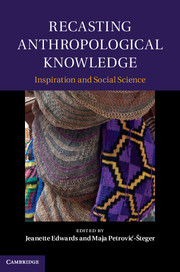Book contents
- Frontmatter
- Contents
- Contributors
- Acknowledgements
- 1 Introduction
- 2 Writing the parallax gap
- 3 Too big to fail
- 4 ???Hybrid custom??? and legal description in Papua New Guinea
- 5 Entomological extensions
- 6 Kinship and the core house
- 7 Invisible families
- 8 Knowledge in a critical mode
- 9 Spools, loops and traces
- 10 Inspiring Strathern
- Bibliography
- Index
1 - Introduction
on recombinant knowledge and debts that inspire
Published online by Cambridge University Press: 07 September 2011
- Frontmatter
- Contents
- Contributors
- Acknowledgements
- 1 Introduction
- 2 Writing the parallax gap
- 3 Too big to fail
- 4 ???Hybrid custom??? and legal description in Papua New Guinea
- 5 Entomological extensions
- 6 Kinship and the core house
- 7 Invisible families
- 8 Knowledge in a critical mode
- 9 Spools, loops and traces
- 10 Inspiring Strathern
- Bibliography
- Index
Summary
The chapters in this collection are connected through the inspiration they draw from the scholarship of Marilyn Strathern, one of the most compelling and innovative social anthropologists of contemporary times. From early fieldwork and a series of monographs on the Hagen people of Papua New Guinea, Strathern earned a reputation as a Melanesianist, but her theoretical interests have always also been oriented towards Euro-American (that is, her own) society. Scholars in both the social sciences and the humanities know her as a feminist and trailblazing anthropologist of, amongst other things, new reproductive technologies, gender, kinship, economics and law. Over a forty-year career, Strathern has insisted on the constructed nature of such marks of professional and other identification, often convening them into new relations or radically recasting their accepted bearing to each other.
Strathern’s reconfigurations have yielded a number of particularly invigorating conceptions of knowledge that have surprised in both their representations and their effects. Her pioneering works on the social and cultural dimension and implications of a range of technological and ethical changes in our time have had a defining, or perhaps a definitively unsettling, role in articulations of what is at stake in a number of current research projects across the humanities and social sciences. How, then, to begin to unpack and introduce Strathern’s enormous contribution to scholarship generally and social anthropology specifically? Chronologically? Thematically? Through an archaeology of her key concepts? A review of her writings? Such strategies seem inadequate – inappropriate even. They go against the grain, risking the imposition of an arbitrary structure on a contribution that defies a linear account and is as immeasurable as it is uncontainable. Strathern’s writings hold up for scrutiny familiar and ‘taken for granted’ concepts and she pays sharp attention to the premises on which ‘western’ scholarship is built. Such a compulsion is as destabilising as it is exhilarating and its impact, as noted above, is felt beyond the discipline of social anthropology. Yet ‘impact’, again, does not seem quite the right word. Strathern’s insights are subtle. They get under the skin and niggle. They work on you as much as you (have to) work on them.
- Type
- Chapter
- Information
- Recasting Anthropological KnowledgeInspiration and Social Science, pp. 1 - 18Publisher: Cambridge University PressPrint publication year: 2011
- 1
- Cited by



